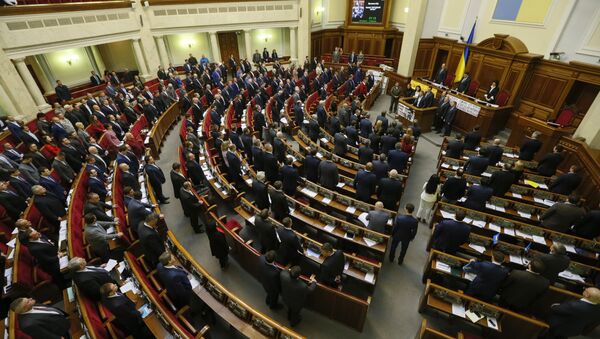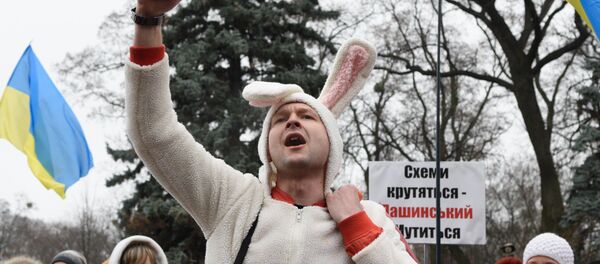Over the past week, Ukrainian politicians descended into shoving matches and eye-gouging over a proposed law, which would tentatively allow the state to take ownership of all assets acquired illegally.
Prime Minister Arseniy Yatsenyuk insists, the law is meant for the repatriation of assets stolen by members of former President Viktor Yanukovich's inner circle. The issue riling politicians, however, is that Yatsenyuk's law would allow the state to seize all property it believes to be acquired illegally, based only on accusations by the country's prosecutors.
"This suggests seizing assets from people who were not declared guilty by the court. This is absurd," Petro Poroshenko Bloc leader Yuriy Lutsenko said.
However, the idea may yet become law. While supporters among Yatsenyuk's party have not been able to achieve a veto-proof majority, previous measures linking the matter to the country's military budget may complicate the resolution.
How Much is at Stake
To force the issue's resolution, the Yatsenyuk government previously put $1.5 billion of non-existent funds into the country's military budget, around 40 percent of its total. However, even if the seizure of private property based on simple accusation by the government were made law, it is doubtful that this would fix the hole in the country's military budget.
While initial estimates put the amount embezzled at $100 billion, new estimates by the Arseniy Yatsenyuk government put the figure at $1.5 billion, while the actual sum of frozen assets appear to be another order of magnitude smaller.
The value of frozen accounts varies greatly by country, with frozen assets in Switzerland are valued at $190 million, while those in Cyprus are said to be only around $5 million.
However, the Ukrainian government has not even sent any accusations that could lead to the repatriation of funds frozen in Cyprus, Ukrainian media reported. With that in mind, it becomes unclear how much is really at stake if the Ukrainian military already has a funding shortfall, which would be impossible to make up even with offshore funds that are currently frozen, as legal cases could stretch for months if not years.



